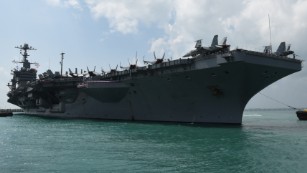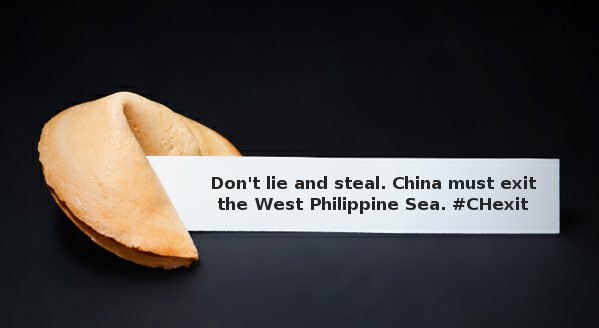Oh look, some economic analysis instead of the usual US-inspired sabre-rattling...
A recent article in the South China Morning Post, a Hong Kong newspaper, reports that the China Geological Survey has discovered a gigantic resource just off the Pearl River delta near Hong Kong: "fire ice" that amounts to 100 to 150 billion cubic metres of natural gas -- more in one small field than B.C.'s estimated 96 billion cubic metres, much of which the Clark government wants to sell to China."Fire ice" is better known as methane clathrates, a very strange material. It's a kind of ice that forms in the seabed and permafrost of the far north, and in the mud under tropical seas if the pressure is high enough. The ice traps methane, and a lot of it. Released into the atmosphere, methane is 20 to 30 times better at trapping heat than carbon dioxide. Clathrates are unstable; the warming atmosphere and ocean tend to melt the ice and free the methane, accelerating the pace of global warming.
A video by the U.S. Geological Survey shows what clathrates look like and how they behave. They hold so much methane that they contain twice the energy in all the other fossil fuels on the planet.
How Fire Ice Could Burn Christy Clark
However ...
Perhaps still more clathrates are buried under rocks and reefs like the Spratlys and the Paracels, but that's not why China claims the region. Its construction of artificial islands in the Nanhai is chiefly to protect the sea lanes through which most of its imported oil travels -- and according to the Bulletin of the Atomic Scientists, that oil is now 60 per cent of all the oil it burns.
P. Escobar has written about this plenty of times. China wants their sea lanes to be safe from US atrocities, acts of war, etc., that would interfere with their economy. Official US doctrine is to smash or destroy any country that could be a rival, now or in the future. So this is a perfectly understandable long term concern of the Chinese, just as NATO "War games" on Russian borders are an ongoing concern of that country. And seeking resources closer at home, as with methane clathrates, also fits into Chinese plans for economic self-sufficiency ... in case the US decides on Cuban-style blockade to destroy the Chinese economy. The truth is, the whole "pivot to Asia" has at its heart an enormously increased US military and naval presence in the Pacific "theatre" (of war) and this has accompanied, even preceded, Chinese actions in the South "China" Sea. (sarcastic scare quotes added)



 116 retweets132 likesReply Retweet 116 Like 132 More
116 retweets132 likesReply Retweet 116 Like 132 More![Beijing blames Philippines for South China Sea trouble Rolex Dela Pena/Reuters]](http://www.aljazeera.com/mritems/imagecache/mbdmegaxxlarge/mritems/Images/2016/7/12/e5ac06ea6e754e51bfe6d11f9614db54_9.jpg)
